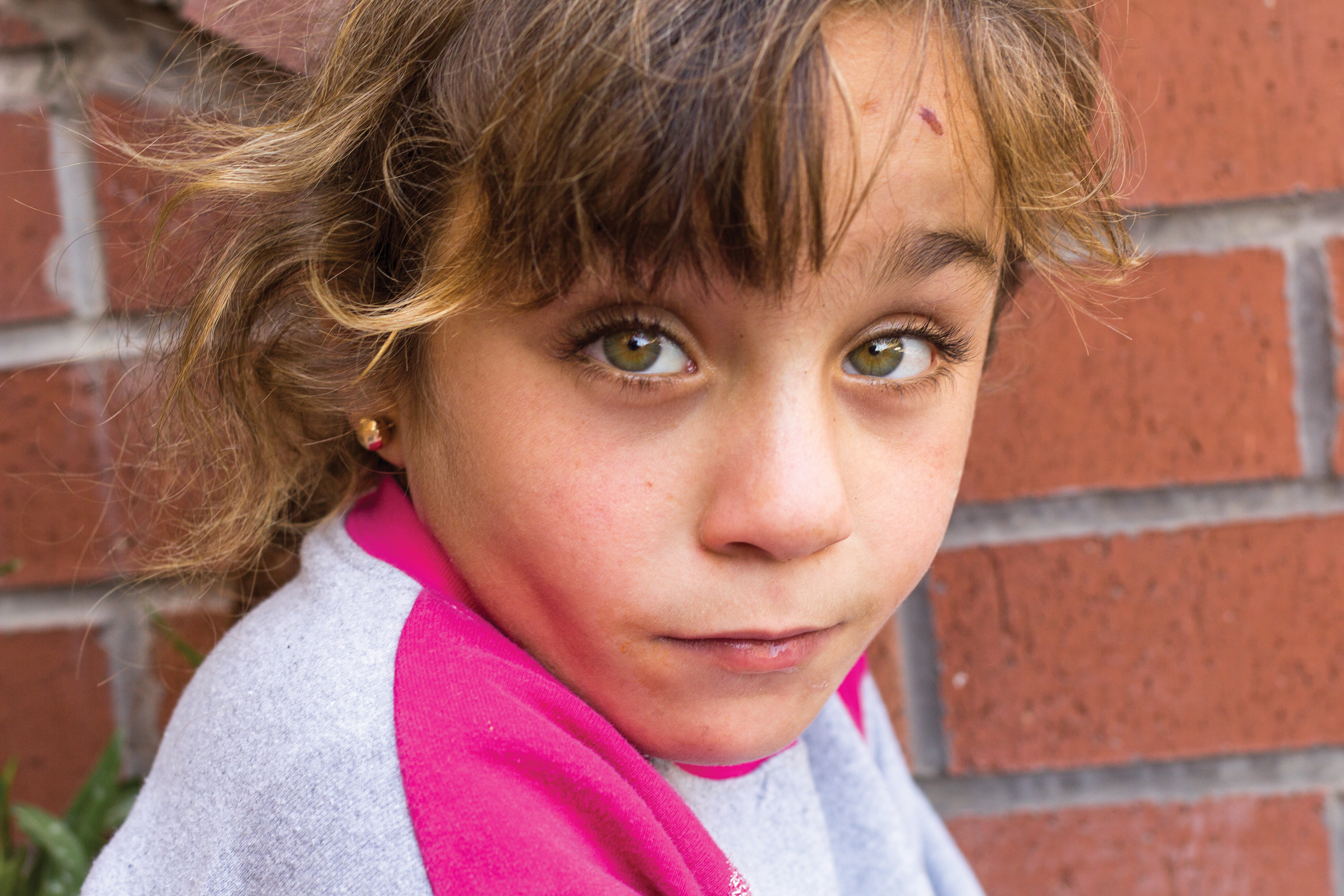
[Iona Brannon | Banner] Seven-year-old Shahed, Syrian refugee, came to Turkey after a month caught in a conflict-stricken border.
“There are some kids that have been asked ‘What do you want now?’ and they would say ‘I want to go to heaven,’” said Zaid Robeen Abdelhamid, California Baptist University graduate student in business administration. “The reporter asked ‘Why?’ and the children said, ‘Because we heard that there’s bread in heaven.’ They just want bread.”
At the U.N. General Assembly Sept. 20, President Barack Obama announced 50 countries have pledged to take in 360,000 refugees in the next year. According to the U.N. Refugee Agency, “A refugee is someone who has been forced to flee his or her country because of persecution, war or violence. A refugee has a well-founded fear of persecution for reasons of race, religion, nationality, political opinion or membership in a particular social group.”
Some countries, such as Canada and Germany will double their intake from last year. The U.S. has pledged to take in 110,000 refugees in the 2017 fiscal year beginning Oct. 1. This is in addition to the 85,000 pledged last year.
Along with opening borders, the countries have pledged an increased amount of $4.5 billion in financial aid toward humanitarian groups and the U.N., specifically for the refugee crisis.
Having visited refugee camps in Jordan and knowing people personally affected by the conflict, Abdelhamid said he supports the movement by the U.N.
He said he wanted to speak about what he has experienced and heard from friends directly instead of the current state of international politics.
“I didn’t get my information from the news or from CNN, or from what the media says,” Abdelhamid said.
“I got what I know from my friends who I lived with when I was a child, who went to Syria and who died. That’s it.”
According to statistics from the U.N., about 21 million people have been forced to leave their home countries because of conflict.
Andrew Twitty, alumnus and adjunct professor of history and government at CBU, said he believes the refugee crisis is of utmost importance. It was during his graduate studies for international and European politics that the Syrian crisis first broke out and he began studying it in
detail.
“We sympathize with the disaster and then move on without actually contributing to solving the problem,” Twitty said, noting that 24-hour coverage on the refugee crisis has desensitized viewers and the international community has not done enough to alleviate the
problem.
“If we take Jesus as our example, then no, we have not done enough,” Twitty said. “In today’s time, we all can do more to assist the refugees. The surrounding nations immediately around Syria have taken in too many refugees, and more nations around the world can take in a lot more.”
Abdelhamid agreed the neighboring countries faced immense pressure in terms of dealing with refugees.
“Countries like Jordan and Turkey didn’t have a choice,” Abdelhamid said. “What are you going to do when a hundred thousand people come to your land running? You’re not going to stop them. It’s either you’re going to kill them or let them in. There’s no
other way.”
Currently, Jordan is host to more than 660,000 refugees. Turkey is host to 2.5 million. The United States has admitted 10,000.
![[Iona Brannon | Banner] A Syrian refugee in Turkey tells her story while holding her young son.](https://cbubanner.com/wp-content/uploads/2016/10/IonaBrannon_Refugee_WEB_02-683x1024.jpg)
A Syrian refugee in Turkey tells her story while holding her young son. Iona Brannon | CBU Banner
Twitty said he not only supports the countries’ pledge to increase the aid but also believes a lack of assistance fails not only God , but also the long-held values America has claimed to
uphold.
The UNHCR website states nearly 34,000 people are forced from their homes daily due to conflict.
Abdelhamid recounted the story of one of his childhood friends who was captured and tortured by the Syrian army while attending a university
in Syria.
“These were students,” Abdelhamid said, “They were 18 or 19. They were unarmed.”
He told of yet another one of his friends whose father was taken from their home five years ago by military officials. The family has not heard from or seen him since.
“There are too many stories,” Abdelhamid said. “Hundreds, thousands of stories. Every family has a story. I’m only telling you the stories that I’ve seen and heard from my friends. That’s what happened to them.”
While countries like the U.S., Canada and Germany may be far removed from the ground conflict, there are thousands who live with the consequences of the conflict daily. The pledge may work to mitigate the effects of conflict, especially in Syria, on innocent citizens.


